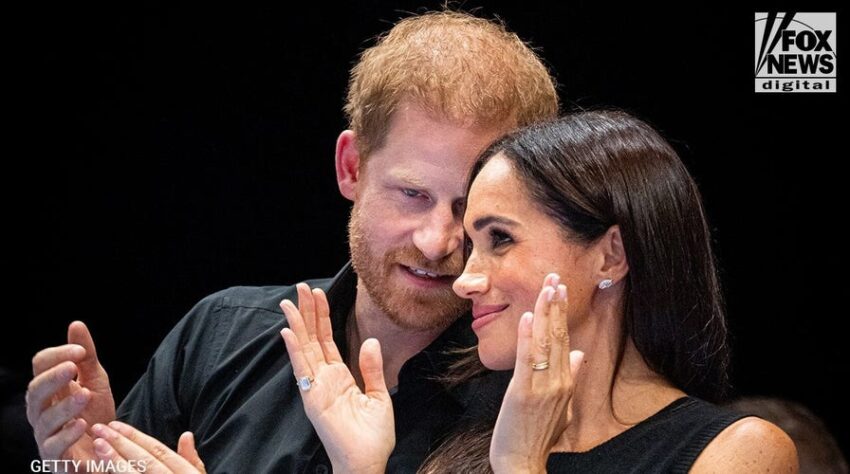In a world where celebrity and privilege often collide, the saga of Prince Harry and Meghan Markle continues to captivate audiences.
Recently, Meghan made headlines by proclaiming herself one of the most bullied individuals globally, a statement that has sparked intense debate and criticism.
For many, this assertion feels like more than just a personal claim; it raises questions about perspective, privilege, and the nature of public life.
Let’s be clear: bullying in any form is unacceptable.
Nobody should endure harassment, whether online or offline.
However, Meghan’s declaration seems to overlook a crucial reality—many public figures navigate similar waters.
It’s almost as if she’s stumbled into a club filled with celebrities who have faced their fair share of scrutiny, yet she’s positioning herself as the sole member.
Meghan Markle’s journey from actress to royal has been anything but ordinary.
She married into the British royal family, enjoying privileges that most can only dream of—living in a palace, having access to royal events, and donning stunning tiaras.
Yet, despite these advantages, she appears to portray herself as a martyr in a narrative filled with struggles.
In stark contrast stands Kate Middleton, the Princess of Wales, who has gracefully handled public life for years.
Since her early days dating Prince William, Kate has faced her own share of criticism, including unflattering nicknames.
Instead of wallowing in self-pity, she rolled up her sleeves, dedicated herself to charitable work, and emerged as a beloved figure within the royal family.
While it’s undeniable that both women have encountered negative comments, Kate has never turned her experiences into a defining part of her identity.
She understands the importance of service over self-promotion, embodying the very essence of royal duty.
Meghan, on the other hand, seems to revel in her victim narrative, continually sharing tales of her hardships.
Take, for instance, Meghan’s recent appearance at an event for Girls Incorporated of Greater Santa Barbara.
While the initiative aimed to empower young girls, Meghan managed to shift the focus onto her own experiences of bullying.
One might wonder if young girls seeking inspiration really want to hear about the woes of a millionaire celebrity rather than uplifting messages about resilience and strength.
Moreover, Meghan’s stance against online bullying comes across as somewhat disingenuous.
She presents herself as a trailblazer in this fight, yet many have been advocating for safer online spaces long before her arrival on the scene.
This perception of self-importance is compounded by her marriage to Prince Harry, who has also been accused of hypocrisy in his critiques of media intrusion while simultaneously sharing intimate details of his life for profit.
Their ongoing media engagements—interviews, documentaries, and podcasts—often paint them as victims.
Meanwhile, other royals like William and Kate continue to focus on their charitable endeavors and public duties without turning every challenge into a spectacle.
The Sussexes’ approach raises eyebrows, leading many to question whether their exit from royal life was truly about mental health or simply a desire for more control over their narrative.
Despite claiming to escape the pressures of royal life, Meghan still seems tethered to the very criticisms she claims to detest.
Her identity appears interwoven with the narrative of victimhood, which begs the question: Who is Meghan Markle without her grievances?
Before marrying Harry, she was primarily known for her acting career, and now her achievements seem overshadowed by her constant need for validation.
In contrast, Kate has carved out her role with dignity and authenticity, avoiding the spotlight while focusing on her responsibilities.
Her public appearances center around the causes she supports, not her personal struggles.
This difference in approach has only endeared her further to the public, as she embodies the values of service and commitment.
The irony in Meghan’s claims of being the world’s most bullied person is hard to ignore.
In a world rife with genuine suffering—war zones, refugees, and systemic oppression—her complaints about online criticism come off as tone-deaf.
It’s crucial to recognize the privilege she holds, yet her narrative seems to lack perspective.
Ultimately, Meghan’s continued focus on victimhood may undermine the very causes she wishes to champion.
Instead of empowering young girls to rise above negativity, her message appears to advocate for constant complaints and attention-seeking behavior.
The true takeaway should inspire resilience and strength, not a cycle of self-pity.
As the drama unfolds, it’s evident that Meghan and Harry’s quest for recognition often overshadows their philanthropic intentions.
While they may seek to position themselves as champions of change, their actions suggest a desire for celebrity status without the accompanying responsibilities.
Meanwhile, Kate and William quietly fulfill their royal duties, showcasing what it means to serve with grace.
The stark contrast between the two couples is undeniable.
One side leans into the spotlight, while the other embraces duty.
As the world watches, it becomes clear that the real winners are those who prioritize service over self-aggrandizement.
And as the royal narrative continues to evolve, one thing remains certain: the truth is often stranger than fiction, especially in the realm of the royals.
